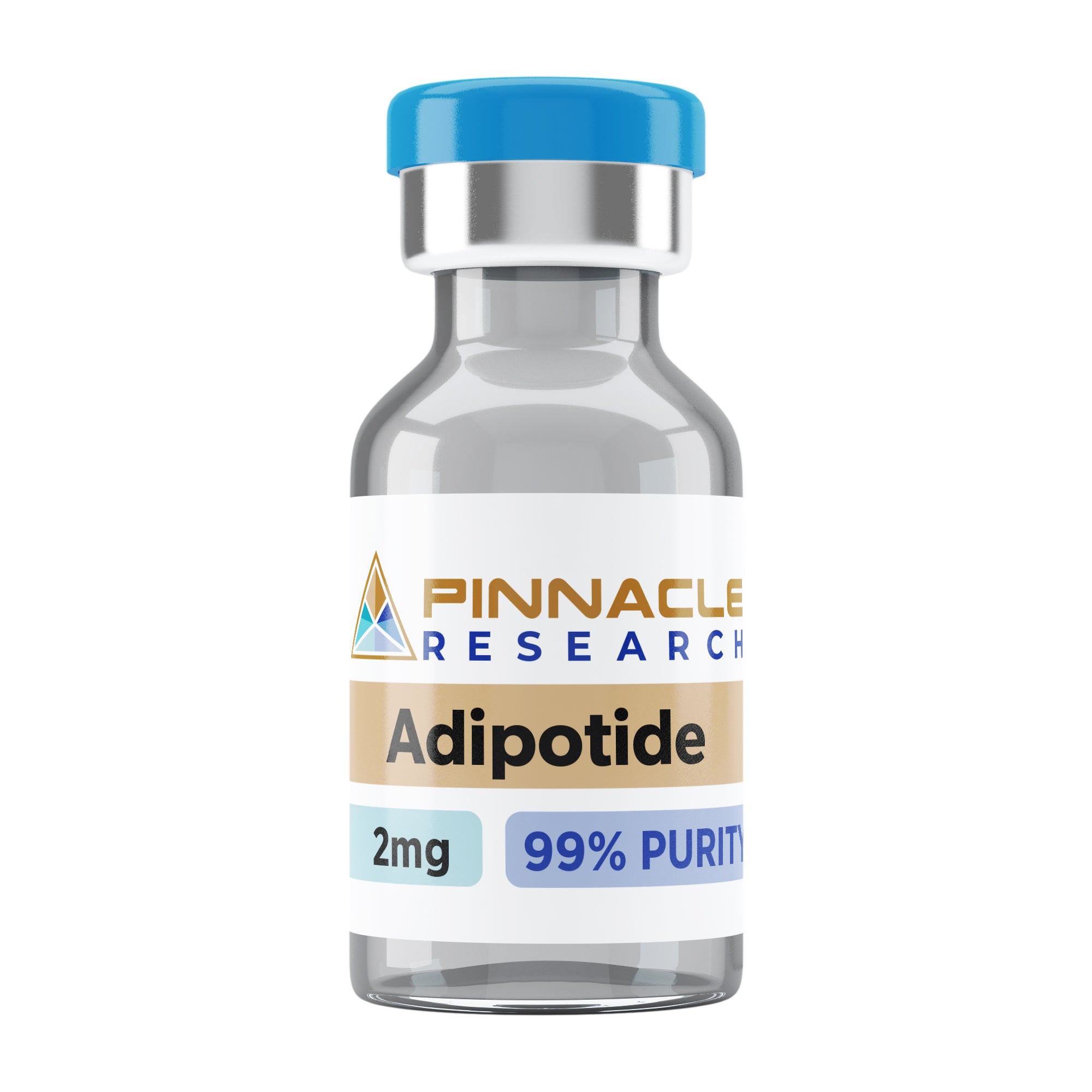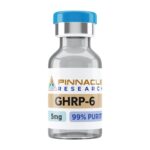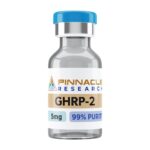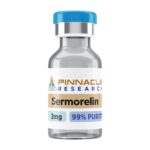About Adipotide
Adipotide (FTPP) is a research chemical compound that is still in the experimental stage and is intended to help people manage effective weight loss. In this brief guide, we look at the chemical and scientific composition of Adipotide and its possible benefits.
What is Adipotide (FTPP)?
Adipotide (FTPP) is a proapoptotic peptide which kills fat cells in the body by targeting the blood supply of the fat cells. The chemical compound can effectively discern the various cells in the blood vessels and identify which ones supply blood to the fat cells. It can also differentiate them from the other blood vessels in the body. Hence they are expected to be very effective in initiating weight loss. Research studies on monkeys showed that the FTPP could trigger weight loss and boost insulin sensitivity, which reduced some side effects of type II diabetes.
Adipotide (FTPP) Structure
Adipotide Chemical Profile
- Formula: C152H252N44O22
- Molecular weight: 2611.41 g/mol
- Peptide purity: >99.0%
- Chain: Cys-Lys-Gly-Gly-Arg-Ala-Lys-Asp-Cys-Gly-Gly-{Lys-Leu-Ala-Lys-Leu-Ala-Lys}2
Adipotide (FTPP) Research
There have been various research studies regarding the potential health benefits of Adipotide (FTPP).
Fat Loss
In 2011, the FTPP research chemical was placed in phase I of clinical trials to investigate its scientific abilities to kill fat cells. Tests on rhesus monkeys revealed that FTPP caused targeted apoptosis. It targeted the blood vessels of the white adipose fat tissues. Limiting the blood supply of the fat cells ultimately kills them. Hence there was rapid weight loss, enhanced insulin resistance and a decrease in BMI. Additionally, the monkeys who experienced weight loss when using Adipotide experienced a change in eating habits by consuming less food.
Cancer
When targeting the blood vessels in the fat cells, Adipotide specifically targets prohibitin, a molecule in the fat cells associated with various types of cancer. Cancer cells require large amounts of blood to grow and metastasize. Targeting prohibitin in the cancer cells might prove advantageous during cancer therapy sessions, harming the cancer cells without affecting the other surrounding body cells.
Glucose tolerance
The most common ways of treating glucose tolerance are through diet and working out, which require serious dedication and motivation. Untreated glucose tolerance ultimately causes overt type II diabetes. Research studies show that peptides initiate speedy improvement in glucose tolerance without depending on weight. The white fat reduction caused by FTPP effectively reduces glucose tolerance and weight loss independently.
Adipotide research primarily focuses on the effects of the research chemical regarding diabetes and fat loss. The FTPP targets specific cells found in the blood vessels that supply blood to the fat cells in the body. They kill the blood vessels and ultimately kill the fat cells due to lack of blood supply. FTTP is categorized as an anti-angiogenic peptide because it only targets the blood vessels. Anti-angiogenic compounds are becoming the primary research compounds in cancer treatment studies.
There are minimal side effects associated with using FTTP. When used in mice, the research chemical exhibited excellent subcutaneous bioavailability and low oral. The use of FTTP is limited to educational and research purposes; therefore, it’s not available for human consumption. You can only purchase the compound if you are a licensed researcher.
If you are a licensed researcher curious to know more about Adipotide (FTPP), you can buy the research chemical and start your clinical trials.




